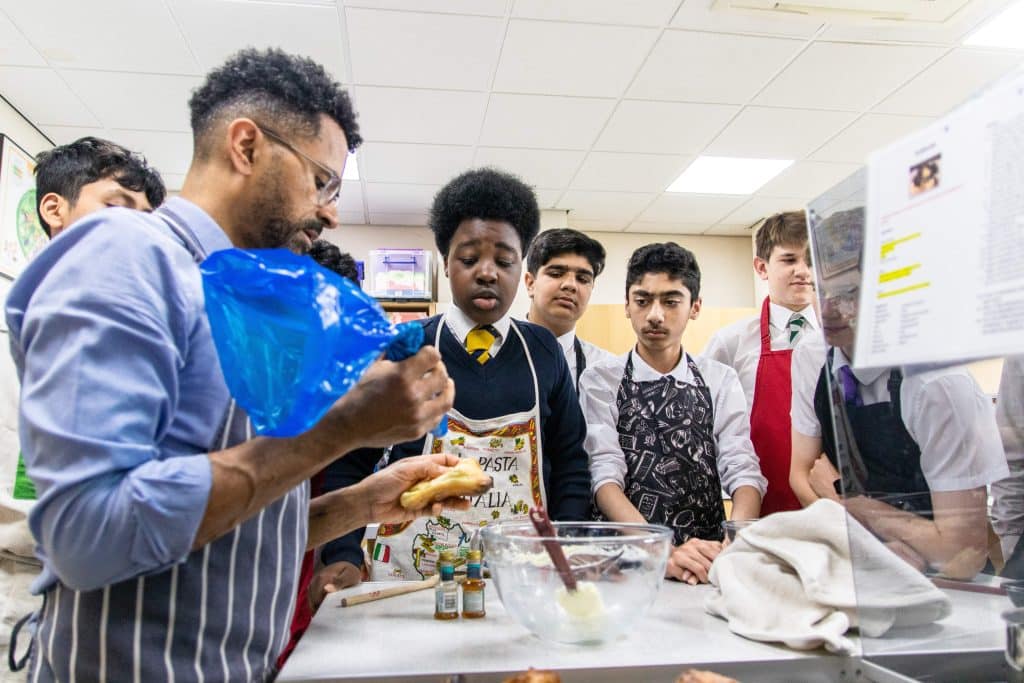Food and Nutrition at Forest School
Head of Department: Ms Roberts SR@forest.org.uk
Food and Nutrition is a transformative subject that shapes students’ understanding of healthy eating habits and nutritional knowledge from an early age. Our comprehensive curriculum is designed to positively influence students’ dietary choices, empowering them to make informed decisions for lifelong wellbeing.
Through hands-on cooking activities and in-depth lessons on food science, students gain practical culinary skills while exploring the intricacies of nutrition. They develop an understanding of risk factors associated with obesity and the cognitive benefits of a balanced diet. Food may be essential as fuel for the body, but knowledge and understanding of the subject and good food is fuel for the soul!
Our rich curriculum offers:
- Immersive cooking activities throughout the year, including collaborations with Boss Food, Primary School cooking sessions, and community-based programs.
- Personalized learning plans tailored to each student’s needs, providing extra support and guidance.
- Exam preparation clinics with revision sessions and practice exams and food labs.
By studying Food and Nutrition, students cultivate creativity in the kitchen while nourishing their knowledge of nutrition science, setting the foundation for lifelong healthy habits.
GCSE Overview
The subject enables students to develop practical life skills. It also helps to cover topics such as:
- Sensory analysis
- Food safety
- Food science
- Nutrition
- The relationship between diet and health
- Food provenance
- Food choice
Assessment at GCSE
Year 11 follow the OCR Food and Nutrition specification
- Non-examinable Assessment – Task 1 Food Investigation Task (15%).
- In this task, learners are required to research and investigate the chemical and functional properties of a food and to carry out investigations into the foods that have been identified in the task. This task is approximately 10 hours long and learners produce a 1,500 to 2,000-word report.
- Non-Examinable Assessment – Task 2 Food Preparation Task (35%).
- In this task, learners are required to research and investigate the influence of lifestyles, age, culinary traditions to develop menus and/or complete dishes for the task. This task should take approximately 20 hours and includes 3 hours to prepare, cook and serve three completed dishes.
- Written Examination (50%). The written examination is 1 hour and 30 minutes and is externally marked. The written examination is taken at the end of the 2 year course.
- The paper will have questions from four areas of the specification covered in year 10: nutrition, food provenance and choice, cooking and food preparation, and skills.
Curriculum Maps – All Years
How can Food and Nutrition change the world?
Food may be essential as fuel for the body, but knowledge and understanding of the subject and good food is fuel for the soul!
“Our food should be our medicine and our medicine should be our food!”


